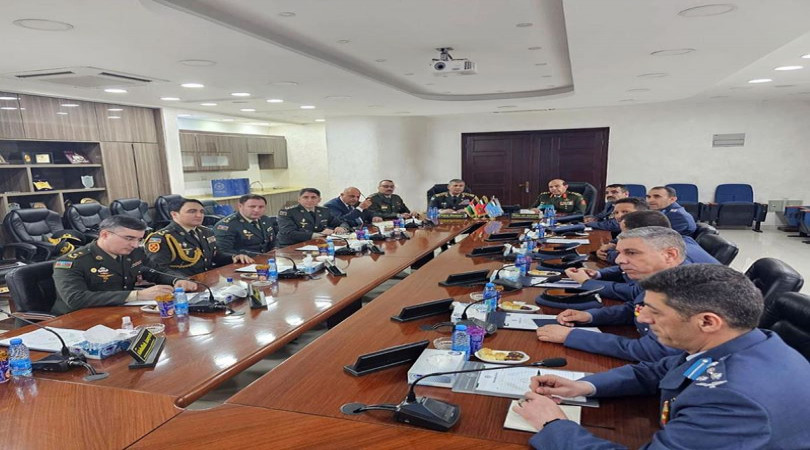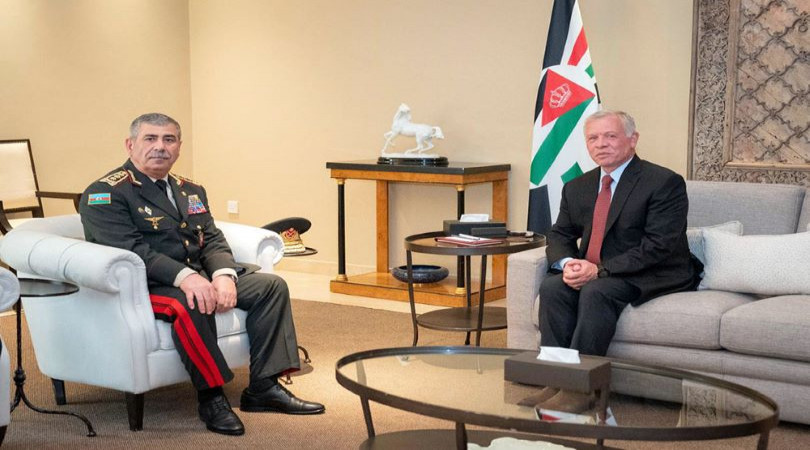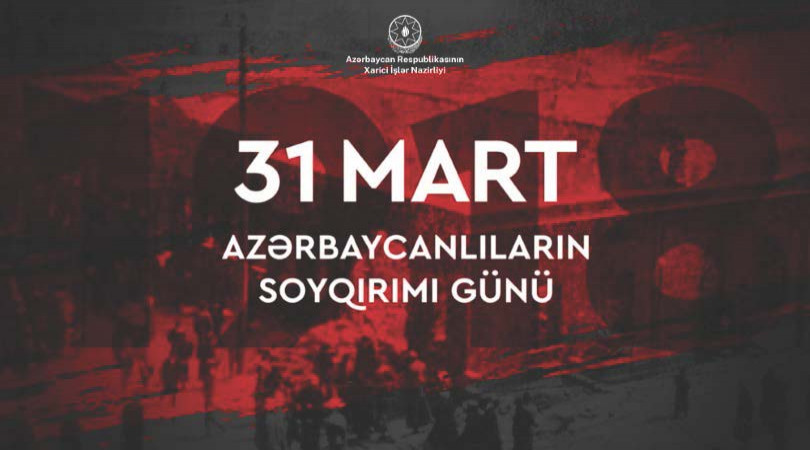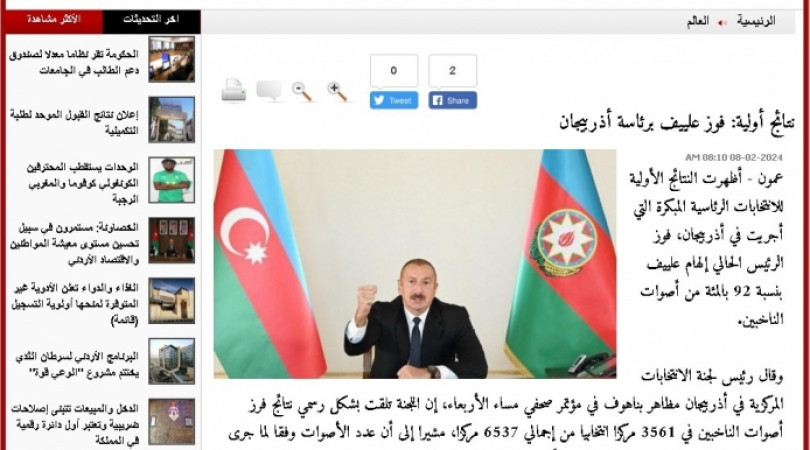Commentary on the report/observations by the Council of Europe Commissioner for Human Rights following her visit to Armenia and Azerbaijan
We took note of the report/observations by the Council of Europe Commissioner for Human Rights in regard with her visit to Armenia and Azerbaijan on 16-23 October 2023.
As highlighted in the Commissioner’s observations, the visit was first time ever human rights mission to Karabakh region of Azerbaijan in decades, which had been prevented for the past 30 years due to the occupation of Azerbaijan’s territories by Armenia. Moreover, the visit, conducted by the invitation and agreement of the Government of Azerbaijan, demonstrates the transparency and cooperation by Azerbaijani authorities towards international human rights institutions.
Overall, the report nullifies baseless insinuations related to so-called “ethnic cleansing” or “forcible displacement” in the aftermath of counter-terror measures of local character undertaken by the armed forces of Azerbaijan on 19-20 September 2023 in its sovereign territories with stringent precautions to civilian areas. Thus, the visit of the Commissioner to the region and her observations point to the fact that it was local Armenians own decision to leave the Karabakh region of Azerbaijan voluntarily without any application of force by Azerbaijani authorities.
The report specifies a number of concrete steps taken by the Government of Azerbaijan in order to ensure the right to return and other human rights, particularly after counter-terror measures. This underscores a positive intent and attitude of Azerbaijan with respect to the issue of reintegration of local Armenian residents and measures envisaged within this process.
The report by the Commissioner also contains the long-lasting impact of the conflict and Armenian occupation, including on civilian infrastructure still in ruins, ongoing demining and reconstruction works being undertaken with a view to ensuring the right to safe and dignified return of internally displaced Azerbaijanis to liberated regions.
Furthermore, the report also highlights the acute problem of massive landmine contamination in the liberated territories of Azerbaijan and the impediments it poses to the rehabilitation of these territories and the pace of return of former internally displaced persons to their homes in safety and dignity, as well as serious risks to their health and life. To this end, the Commissioner welcomes the steps taken by the Azerbaijani government to facilitate the process of return. In this context, the indication in the report of accuracy rate (only 25%) of minefield maps submitted by Armenia so far must be particularly noted. As a matter of fact, Armenia deliberately engaged in massive landmine deployment in the sovereign territories of Azerbaijan in order to pursue its aggression policy in the region and sustain the occupation of the territories of Azerbaijan.
Nonetheless, the document unfortunately does not genuinely reflect fundamental realities related to the overall human rights situations of all people affected by the conflict unleashed by Armenia, which resulted in nearly 30-year occupation of Azerbaijani territories. Thus, it was Armenia’s aggression against Azerbaijan that led to systematic acts of ethnic cleansing, war crimes, and forcible displacement of hundreds of thousands of Azerbaijanis, including vulnerable children, elderly individuals, and women. Armenia’s aggression gravely deprived tens of thousands of children of their essential human rights, including the right to life, education, safety, protection, and health. We wished such evidences that triggered enmity between the two nations in the region were duly highlighted in the observations of the Commissioner.
It is deplorable that the report includes references to so-called “blockade” of the Lachin road, which is far from the reality and has not been acknowledged by the International Court of Justice (ICJ) either. In this regard, the observation fails to indicate the facts underlying the civilian protests on the Lachin-Khankendi road, and later establishment of border crossing point in the Azerbaijan-Armenia border. The Azerbaijani side has on numerous occasions provided substantiated evidences regarding a wide-range and systematic abuse by Armenia of the Lachin road for various illegal purposes throughout the past three years in gross violation of the trilateral statement of 10 November 2020 and international law, including for sustaining and rotating more than ten thousand-strong illegal armed formations in the territory of Azerbaijan, and illegal transfer of landmines. This inflicted serious civilian and military casualties to the Azerbaijani side.
As to the establishment of border crossing point by Azerbaijan on 23 April 2023 in response to the aforementioned wrongdoings and failure of Armenia to honor its obligations, Azerbaijan exercised its sovereign right to fully control the Lachin road based on international law, which was also duly reflected in the ICJ ruling of 6 July 2023, when Armenian claims were unanimously rejected. Moreover, while the Commissioner refers to December 2021 Order of the ICJ, she overlooks that fact of indication of provisional measure requesting Armenia to prevent the incitement and promotion of racial hatred and discrimination against Azerbaijan.
The Azerbaijani side regrets that the meetings of the Commissioner with the survivors of Khojaly genocide perpetrated by Armenia, as well as with members of Western Azerbaijani Community expelled from their homes in modern day Armenia were not reflected in the report. This would have ensured accurate reflection of the visit of the Commissioner, as well as a more comprehensive approach to human rights issues that the report aimed to cover, including the right to return. It is of particular importance, since the Commissioner herself reiterates in the observations that all persons displaced by the long-lasting conflict have the right to return to their homes or places of habitual residence, regardless of whether they have been displaced internally or across borders.
Finally, it is essential to mention that Azerbaijan extended the invitation to the Commissioner to visit the region, expecting that it will make observations based on neutrality, impartiality, equality and universality of all human rights. While noting the visit’s outcomes, Azerbaijan emphasizes that the observations of the Commissioner lack complete fairness and impartiality. It focuses the issues on narrow and sole perspective that overlooks comprehensive review of the situation. In this regard, Azerbaijan considers that the findings rely not on the Commissioner’s direct observations during her visit but primarily on information obtained from other incomplete and biased sources.



















